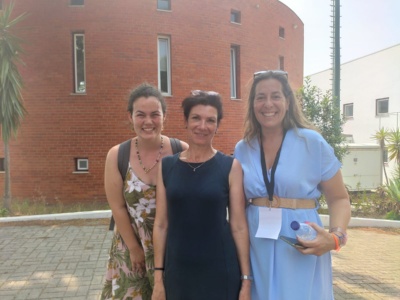The Erasmus+ programme Staff Mobility for Training provides support and funding for academic and non-academic staff to go abroad on short teaching or training visits in programme countries.
It enables university members to pick up new ideas and practices, develop skills in their field, and to build and develop international relationships. The knowledge and experience gained help the own personal and professional development and benefit university members through sharing of best practice, intercultural understanding and development of networks.
Erasmus+ Staff Mobility for Training is generally subsidised according to the following rules:
Funding for staff training can be used to support a variety of professional development activities. These could include:
Training programmes should be built around personal and professional development, and may include knowledge transfer, sharing good practice, learning from shared experience, acquiring practical skills or discovering new ideas for learning and teaching.
International Staff Weeks
http://staffmobility.eu/staff-week-search
 Staff Mobility IRO-CIMOB
Staff Mobility IRO-CIMOB
From 26-30 June 2023, our partner university Instituto Politécnico de Setúbal in Portugal invited teachers, researchers and staff from the International Offices to the 13th International Week. As part of an Erasmus+ staff mobility, it was an opportunity for me to have a personal and constructive exchange with our colleagues from the International Office (CIMOB) there and mobility coordinators from the School of Education and the School of Business and Administration. Among the topics for discussion were: InterAct scholarships for IPS Incomings, presentation of a project proposal in the field of Entrepreneurship and international internships, an exchange on the positive experiences with Erasmus BIP's and especially the extension of the existing Erasmus agreement to the study programme Sport Management, which could be implemented immediately.
In addition to exciting lectures and networking with international and national colleagues, the intercultural exchange also included a visit to a winery with the tasting of regional specialities.
My conclusion: staff mobility is not just about "thinking outside the box". The personal exchange with international colleagues contributes to the expansion and consolidation of cooperation, simplifies all processes and is a personal enrichment.
I would like to take this opportunity to thank all my IPS colleagues for their warm welcome and support!